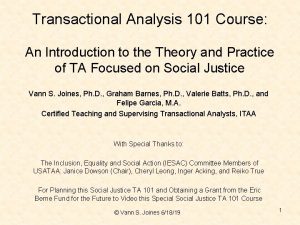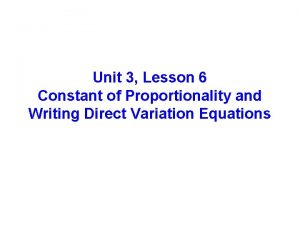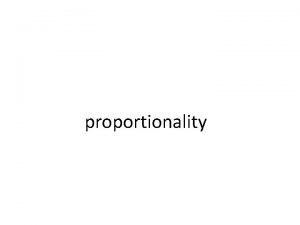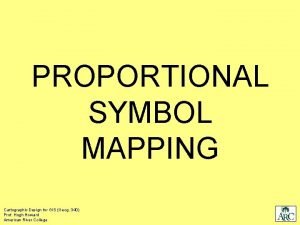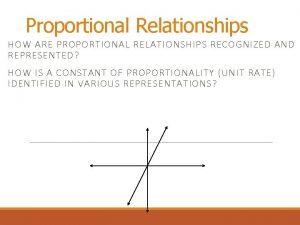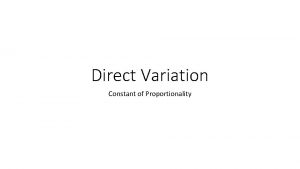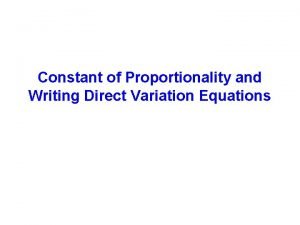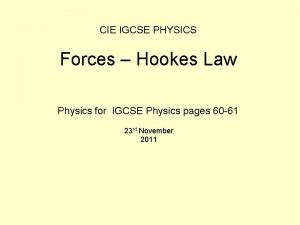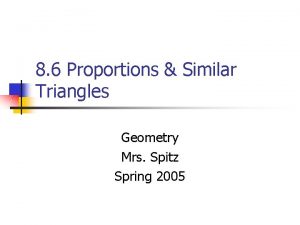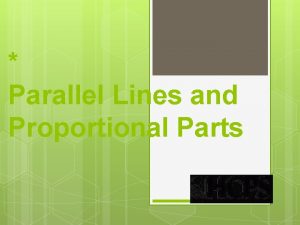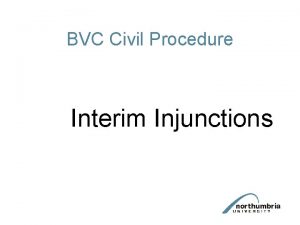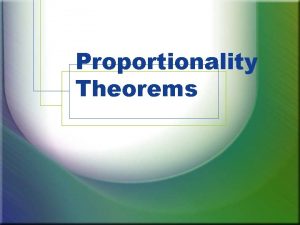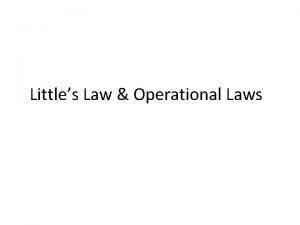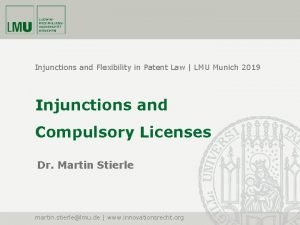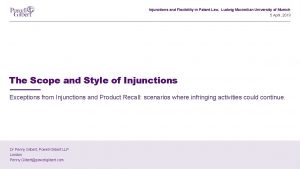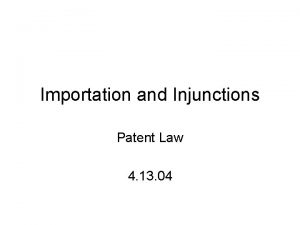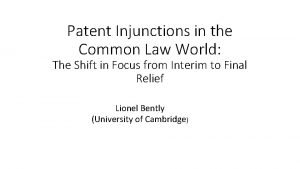Proportionality in EU and English law Injunctions and



![Case C-275/06 Productores de Música de España (Promusicae) v Telefónica de España SAU [2008] Case C-275/06 Productores de Música de España (Promusicae) v Telefónica de España SAU [2008]](https://slidetodoc.com/presentation_image_h2/85780b510a8480b3b094a056e456c9a7/image-4.jpg)
![Case C-324/09 L’Oreal SA v e. Bay International AG [2011] ECR I-6011 138. The Case C-324/09 L’Oreal SA v e. Bay International AG [2011] ECR I-6011 138. The](https://slidetodoc.com/presentation_image_h2/85780b510a8480b3b094a056e456c9a7/image-5.jpg)



![Case C-580/13 Coty Germany Gmb. H v Stadtsparkasse Magdeburg [EU: C: 2015: 485] 34. Case C-580/13 Coty Germany Gmb. H v Stadtsparkasse Magdeburg [EU: C: 2015: 485] 34.](https://slidetodoc.com/presentation_image_h2/85780b510a8480b3b094a056e456c9a7/image-9.jpg)


![2. English law HTC Corp v Nokia Corp (No 2) [2013] EWHC 3778 (Pat), 2. English law HTC Corp v Nokia Corp (No 2) [2013] EWHC 3778 (Pat),](https://slidetodoc.com/presentation_image_h2/85780b510a8480b3b094a056e456c9a7/image-12.jpg)

![Edwards Life Sciences LLC v Boston Scientific Scimed Inc (No 3) [2018] EWHC 1256 Edwards Life Sciences LLC v Boston Scientific Scimed Inc (No 3) [2018] EWHC 1256](https://slidetodoc.com/presentation_image_h2/85780b510a8480b3b094a056e456c9a7/image-14.jpg)
- Slides: 14

Proportionality in EU and English law Injunctions and Flexibility in Patent Law Ludwig Maximilian University Munich 4 April 2019 (Mr Justice) Richard Arnold

1. EU law European Parliament and Council Directive 2004/48/EC of 29 April 2004 on the enforcement of intellectual property rights (17) The measures, procedures and remedies provided for in this Directive shall be determined in each case in such a manner as to take due account of the specific characteristics of each case … (24) Depending on the particular case, and if justified by the circumstances, the measures, procedures and remedies to be provided for should include prohibitory measures aimed at preventing further infringements of intellectual property rights. … 3(1) remedies necessary to ensure the enforcement of the intellectual property rights covered by this Directive. … (2) Those measures, procedures and remedies shall be … proportionate …

Guidance on certain aspects of European Parliament and Council Directive 2004/48/EC of 29 April 2004 on the enforcement of intellectual property rights COM(2017) 708 final … in order to ensure the balanced use of the civil IPR enforcement system, the competent judicial authorities should generally conduct a case-by-case assessment when considering the grant of the measures, procedures and remedies provided for by IPRED. … Although these decisions were issued in the specific context of litigation relating to copyright infringements, the CJEU’s analysis addresses in general the balance between the fundamental rights at issue. Therefore, the Commission believes that the requirement of ensuring a fair balance between such rights, in light of the general principle of proportionality, applies not only in copyright infringement cases, but in cases concerning all the IPR falling within IPRED’s scope.
![Case C27506 Productores de Música de España Promusicae v Telefónica de España SAU 2008 Case C-275/06 Productores de Música de España (Promusicae) v Telefónica de España SAU [2008]](https://slidetodoc.com/presentation_image_h2/85780b510a8480b3b094a056e456c9a7/image-4.jpg)
Case C-275/06 Productores de Música de España (Promusicae) v Telefónica de España SAU [2008] ECR I-271 68. mentioned above, take care to rely on an interpretation of the directives which allows a fair balance to be struck between the various fundamental rights protected by the Community legal order. Further, when implementing the measures transposing those directives, the authorities and courts of the Member States must not only interpret their national law in a manner consistent with those directives but also make sure that they do not rely on an interpretation of them which would be in conflict with those fundamental rights or with the other general principles of Community law, such as the principle of proportionality …
![Case C32409 LOreal SA v e Bay International AG 2011 ECR I6011 138 The Case C-324/09 L’Oreal SA v e. Bay International AG [2011] ECR I-6011 138. The](https://slidetodoc.com/presentation_image_h2/85780b510a8480b3b094a056e456c9a7/image-5.jpg)
Case C-324/09 L’Oreal SA v e. Bay International AG [2011] ECR I-6011 138. The rules laid down by the Member States, and likewise their application by the national courts, must also observe the limitations arising from Directive 2004/48 and from the sources of law to which that directive refers. 139. … a general monitoring obligation would be incompatible with Article 3 of Directive 2004/48, which states that the measures referred to by the directive must be … proportionate …. 141. … injunctions which are … proportionate may be issued … 143. The measures that are described … in the preceding paragraphs, as well as any other … injunction under the third sentence of Article 11 of Directive 2004/48, must strike a fair balance between the various rights and interests mentioned above (see … Promusicae … 144. … Those injunctions must be … proportionate …

Case C-70/10 Scarlet Extended SA v Société belge des auteurs, compositeurs et éditeurs SCRL (SABAM) [2011] ECR I-11959 46. As paragraphs 62 to 68 of … Promusicae … make clear, the protection of the fundamental right to property, which includes the rights linked to intellectual property, must be balanced against the protection of other fundamental rights. 45. More specifically, it follows from paragraph 68 … that, in the context of measures adopted to protect copyright holders, national authorities and courts must strike a fair balance between the protection of copyright and the protection of the fundamental rights of individuals who are affected by such measures. 46. Accordingly, …, national authorities and courts must, in particular, strike a fair balance between the protection of the intellectual property right enjoyed by copyright holders and that of the freedom to conduct a business enjoyed by operators such as ISPs ….

Case C-314/12 UPC Telekabel Wien Gmb. H v Constantin Film Verleih Gmb. H [EU: C: 2014: 192] 47. that at issue in the main proceedings, . . , makes it necessary to strike a balance, primarily, between (i) copyrights and related rights, which are intellectual property and are therefore protected under Article 17(2) of the Charter, (ii) the freedom to conduct a business, which economic agents such as internet service providers enjoy under Article 16 of the Charter, and (iii) the freedom of information of internet users, whose protection is ensured by Article 11 of the Charter.

onsequently, heven 63. an injunction such as that at issue in the main proceedings are not capable of leading, in some circumstances, to a complete cessation of the infringements of the intellectual property right, they cannot however be considered to be incompatible with the requirement that a fair balance be found, in accordance with Article 52(1), in fine, of the Charter, between all applicable fundamental rights, provided that (i) they do not unnecessarily deprive internet users of the possibility of lawfully accessing the information available and (ii) that they have the effect of preventing unauthorised access to protected subject-matter or, at least, of making it difficult to achieve and of seriously discouraging internet users who are using the services of the addressee of that injunction from accessing the subject-matter that has been made available to them in breach of the intellectual property right.
![Case C58013 Coty Germany Gmb H v Stadtsparkasse Magdeburg EU C 2015 485 34 Case C-580/13 Coty Germany Gmb. H v Stadtsparkasse Magdeburg [EU: C: 2015: 485] 34.](https://slidetodoc.com/presentation_image_h2/85780b510a8480b3b094a056e456c9a7/image-9.jpg)
Case C-580/13 Coty Germany Gmb. H v Stadtsparkasse Magdeburg [EU: C: 2015: 485] 34. … EU law requires that, when transposing directives, the Member States take care to rely on an interpretation of them which allows a fair balance to be struck between the various fundamental rights protected by the EU legal order. Subsequently, when implementing the measures transposing those directives, the authorities and courts of the Member States must not only interpret their national law in a manner consistent with those directives but also make sure that they do not rely on an interpretation of them which would be in conflict with those fundamental rights or with the other general principles of EU law … protected by the Charter is to be regarded as not respecting the requirement that such a fair balance be struck between the fundamental rights which must be reconciled (see, as regards an injunction, judgments in Scarlet Extended …

Case C-494/15 Tommy Hilfiger Licensing LLC and Others v DELTA CENTER a. s [EU: C: 2016: 528] 34. proportionate. … 35. The Court thus took the view that any injunction within the meaning of the third sentence of Article 11 of Directive 2004/48 may be pronounced only if it ensures a fair balance between the protection of intellectual property and the absence of obstacles to legitimate trade … 36. While, … in L’Oréal …, the Court had to interpret the third sentence of Article 11 of Directive 2004/48 in the context of injunctions which may be addressed to an intermediary in an online marketplace, it interpreted that article in the light of the general provisions formulated in Article 3 of that directive …. Moreover, it follows from the wording of Article 3 of the directive that it applies to any measure referred to by that directive …

Case C-484/14 Mc. Fadden v Sony Music Entertainment Germany Gmb. H [EU: C: 2016: 689] 83. Where several fundamental rights protected under EU law are at stake, it is for the national authorities or courts concerned to ensure that a fair balance is struck between those rights … 87. monitoring all of the information … must be excluded from the outset as contrary to Article 15(1) of Directive 2000/31 … … 88. … terminating the internet connection completely … would cause a serious infringement of the freedom to conduct a business … 100. … [password] securing a connection must be considered to be capable of striking a fair balance between, first, the fundamental right to protection of intellectual property and, second, the right to freedom to conduct the business of a[n access] provider … and the right to freedom of information of the recipients of that service …
![2 English law HTC Corp v Nokia Corp No 2 2013 EWHC 3778 Pat 2. English law HTC Corp v Nokia Corp (No 2) [2013] EWHC 3778 (Pat),](https://slidetodoc.com/presentation_image_h2/85780b510a8480b3b094a056e456c9a7/image-12.jpg)
2. English law HTC Corp v Nokia Corp (No 2) [2013] EWHC 3778 (Pat), [2014] RPC 30 26. In my view, the time has come to recognise that, in cases concerning infringements of intellectual property rights, the criteria to be applied when deciding whether or not to grant an injunction are those laid down by Article 3(2): … proportionality … 27. So far as proportionality is concerned, it should also be recognised that the proportionality of an injunction to restrain infringement of an intellectual property right may depend on which, if any, other rights are in play. A number of the CJEU cases referred to above have concerned conflicts between intellectual property rights and other fundamental rights guaranteed by the European Convention on Human Rights and/or the Charter of Fundamental Rights of the European Union. . . In those circumstances, the correct approach is that I stated in Golden Eye International Ltd v Telefónica UK Ltd …

74. … I am not persuaded that this is a case in which I should exercise my discretion to award damages in lieu of an injunction. Nokia has a legitimate interest in seeking a final injunction to prevent further exploitation of the patented invention by HTC without its consent. This is not a case in which the injury to the patent is small, capable of being estimated in money and adequately compensated by a relatively small money payment. If an injunction were refused, it would have to be on the basis of an order for a running royalty. In those circumstances, refusal of an injunction would be tantamount to imposing a compulsory licence on Nokia in circumstances where HTC could not obtain a compulsory licence by the proper route. Most importantly, the grant of a final injunction would not be disproportionate. The grant of an injunction will not deliver HTC over to Nokia "bound hand foot, in order to be made subject to any extortionate demand" Nokia may make, because HTC already has some non-infringing alternatives available to it, could have had more non-infringing alternatives available to it by now if it had acted promptly when first sued by Nokia and will in any event have more non-infringing alternatives available to it in a period which is significantly shorter than the remaining term of the Patent.
![Edwards Life Sciences LLC v Boston Scientific Scimed Inc No 3 2018 EWHC 1256 Edwards Life Sciences LLC v Boston Scientific Scimed Inc (No 3) [2018] EWHC 1256](https://slidetodoc.com/presentation_image_h2/85780b510a8480b3b094a056e456c9a7/image-14.jpg)
Edwards Life Sciences LLC v Boston Scientific Scimed Inc (No 3) [2018] EWHC 1256 (Pat), [2018] FSR 31 15. It was common ground between the parties that, in determining the issues as to (i) the length of the stay and (ii) the scope and duration of the qualification, the Court should have regard to the public interest and should exercise its discretion in accordance with Article 3 of … Directive 2004/48/EC … 16. As I have observed in another context, the key consideration in Article 3 is proportionality and consideration of the other factors feeds into the proportionality analysis. • Injunction stayed for 12 months to enable clinicians to be re-trained (with permission to apply for an extension) • Injunction qualified to permit Sapien 3 to be supplied to patients for whom it was the only suitable device (with permission to apply for removal of qualification if suitable non-infringing alternative available)
 Transactional analysis 101
Transactional analysis 101 Newton's first law and second law and third law
Newton's first law and second law and third law Si unit of newton's first law
Si unit of newton's first law Constant of proportionality guided notes
Constant of proportionality guided notes Xayx
Xayx Proportionality symbol in word
Proportionality symbol in word Whats proportional relationship
Whats proportional relationship Converse triangle proportionality theorem
Converse triangle proportionality theorem How to find proportional relationship on a graph
How to find proportional relationship on a graph What is the constant of proportionality?
What is the constant of proportionality? Constant of proportianlity
Constant of proportianlity Hooke's law igcse physics
Hooke's law igcse physics Proportion of triangles
Proportion of triangles Triangle proportionality theorem worksheet
Triangle proportionality theorem worksheet Two transversal proportionality corollary
Two transversal proportionality corollary
